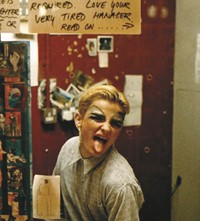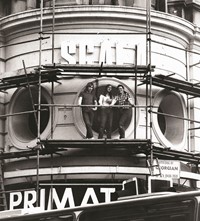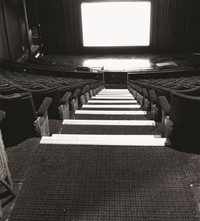To mark the release of her new book Scala Cinema 1978-1993, author Jane Giles share some personal memories of the cinema of sin
- TextJane Giles
We thought it was normal at the time.
That there in the badlands of the capital’s seediest terminus, AKA King’s Cross, was a towering punk picture palace where our wildest dreams came true. The cinema’s jewel-coloured monthly calendar programmes were full of promise. Zu: Warriors from the Magic Mountain. Eraserhead. Beneath the Valley of the Ultravixens. Creature from the Black Lagoon. Taxi Zum Klo. Godzilla vs. the Cosmic Monster. Santa Sangre. Pink Narcissus. Every day was different. We pinned the treasured programmes to our walls and still have them somewhere, in a cupboard under the stairs.
A million people went through the doors of the Scala between 1978-1993, everyone from fan boys to Boy George. Tickets only cost a few quid, less if you flashed your UB40 or student card. Once inside the cinema you could stay for hours and hours in that deep, dark and mysteriously rumbling auditorium. Fuelled by foul coffee, Red Stripe and sandwiches. Lost to visionary films on the massive, if slightly stained, silver screen. Meanwhile things went on behind you in the shadows. Sex. Death. Pussy cats.
“I often used to spend the whole night in the Scala, dozing towards the early hours with a boyfriend’s arm around me, drinking double vodkas,” recalls the writer and musician Viv Albertine. “The Scala’s where I first saw the films of John Waters, Russ Meyer and Ingmar Bergman. I’ll never forget the first time I went there on my own, to see Powell and Pressburger’s The Red Shoes. I was utterly entranced by the film and loved that I didn’t have anybody next to me to think about or be distracted by. I always felt safe at the Scala, so had no qualms about going there alone, whereas I wouldn’t have even considered it at any other cinema. I still remember almost every frame of that vivid, female-led film. I was at film school at the time, and seeing The Red Shoes that afternoon made such a deep impression on me that I went back to see all of Powell and Pressburger’s films and became a lifelong fan.’
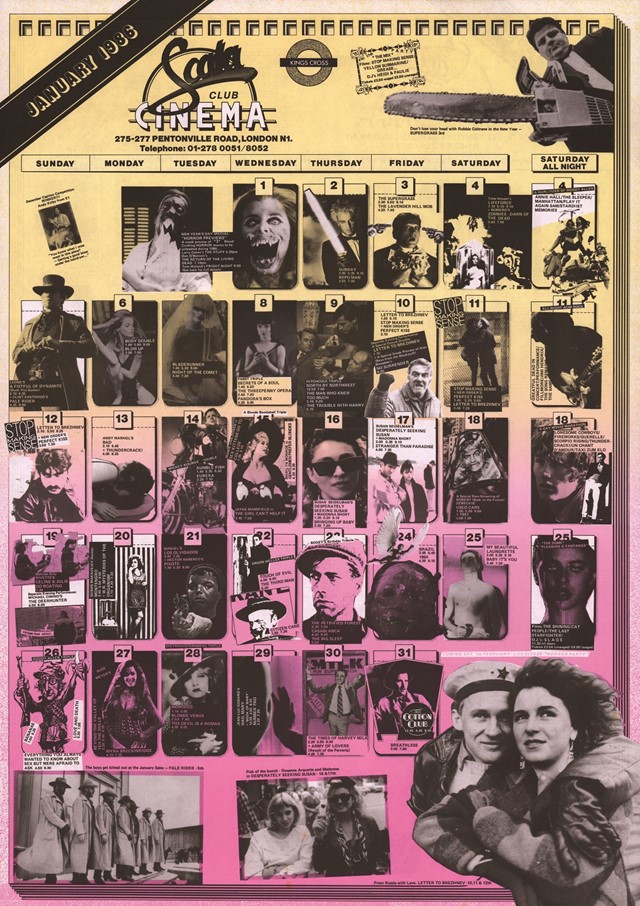
In the summer of 1981 I was, like Viv, a teenager in the audience with a boyfriend’s arm around my shoulders. We were up from the sticks for a quintuple bill that included Assault on Precinct 13 and Living Dead at the Manchester Morgue. The intermission music was Love Will Tear Us Apart. That night I fell for the Scala’s incredible atmosphere and its eclectic mix of cult movies, horror, hardcore experimenta and LGBT cinema, which became my unofficial film education.
The Scala relied on the youth and enthusiasm of its staff to keep the place running and to take risks. JoAnne Sellar was only 19 when she got the job of Scala programmer. She tackled the ‘Video Nasties’ furore with gusto and was known as ‘the Queen of Gore’. Sellar went on to produce Boogie Nights and all of Paul Thomas Anderson’s films. I became programmer in 1988 and among other small triumphs managed to persuade Camden Council to lift their restriction on the futuristic sex film, Café Flesh. However I was personally prosecuted for screening A Clockwork Orange, which at the time was withdrawn from distribution.
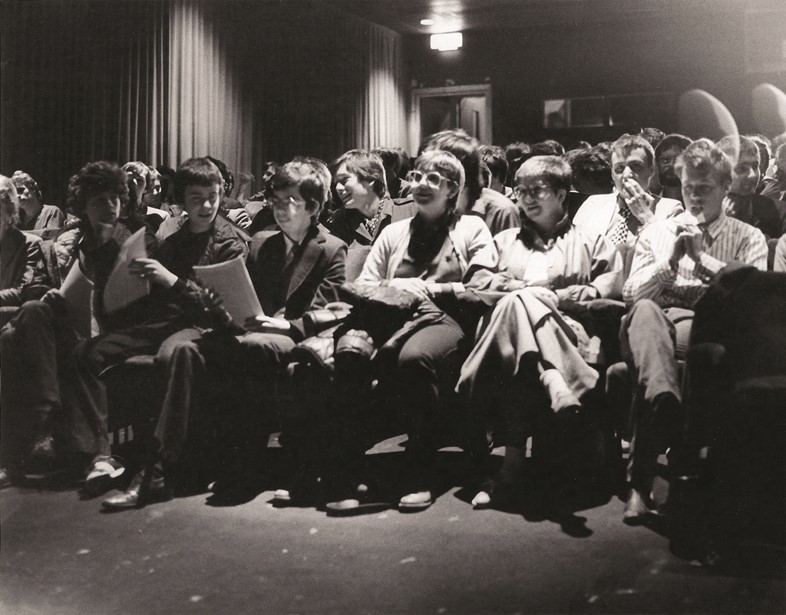
To tell the post-punk/pre-digital story of the Scala, I collected every one of its programmes from 1978-1993 and looked at what else was happening at that turbulent time. The Thatcher years and the miners’ strikes. Recession and homelessness. Race riots. The AIDS crisis. The coming of home video, Channel 4 and MTV. All of this shaped society and culture at that time. The Scala closed when its lease expired, but had made its mark as several of its audience members went on to become filmmakers. James Marsh, Martin McDonagh, Andy Nyman, Peter Strickland, Ben Wheatley, Joe Cornish and Christopher Nolan, who still carries his last Scala membership card in his wallet. Edgar Wright was a bit too young and out of town to have been there, but in 1996 shot his short music film Sparkle Up Nomads featuring the High Llamas in the disused Scala, with its 1920s black and white marble mosaic floors.
Despite the apparent death of the double-bill, this story has a happy ending. One weekend in July 1972, both Lou Reed and Iggy Pop played live at the King’s Cross Cinema, documented by the photographer Mick Rock. Those pictures became two of the all-time most iconic album covers, Transformer and Raw Power. The Scala reopened in 1999, not as ubiquitous luxury apartments but as a thriving live music venue. Grandmaster Flash recently DJ-ed there and it was a thrilling moment for me when he held up the cover of Transformer, the latest of many crossed-wires and strange coincidences that characterise the story of the Scala.
Scala Cinema 1978-1993 by Jane Giles, foreword by Stephen Woolley (FAB Press). Scalarama presents the Scala Book Launch from 7pm on September 26, 2018, at the Scala with film composer Simon Boswell playing live, tickets £11 at DICE.fm

